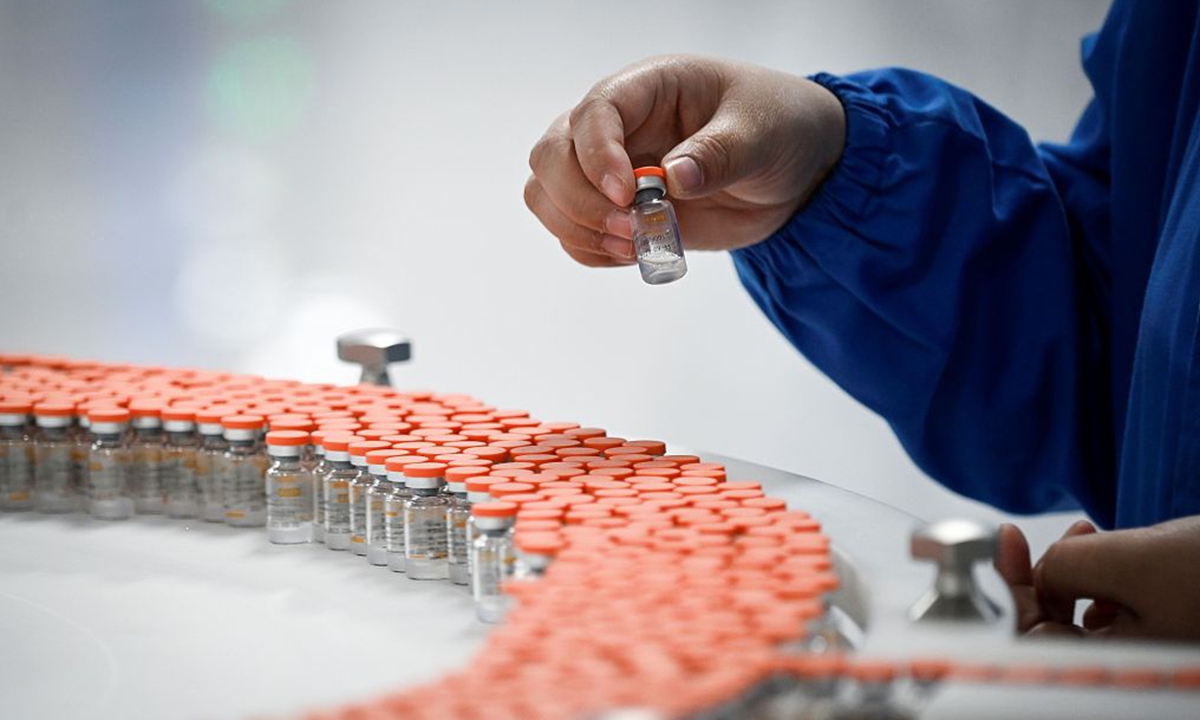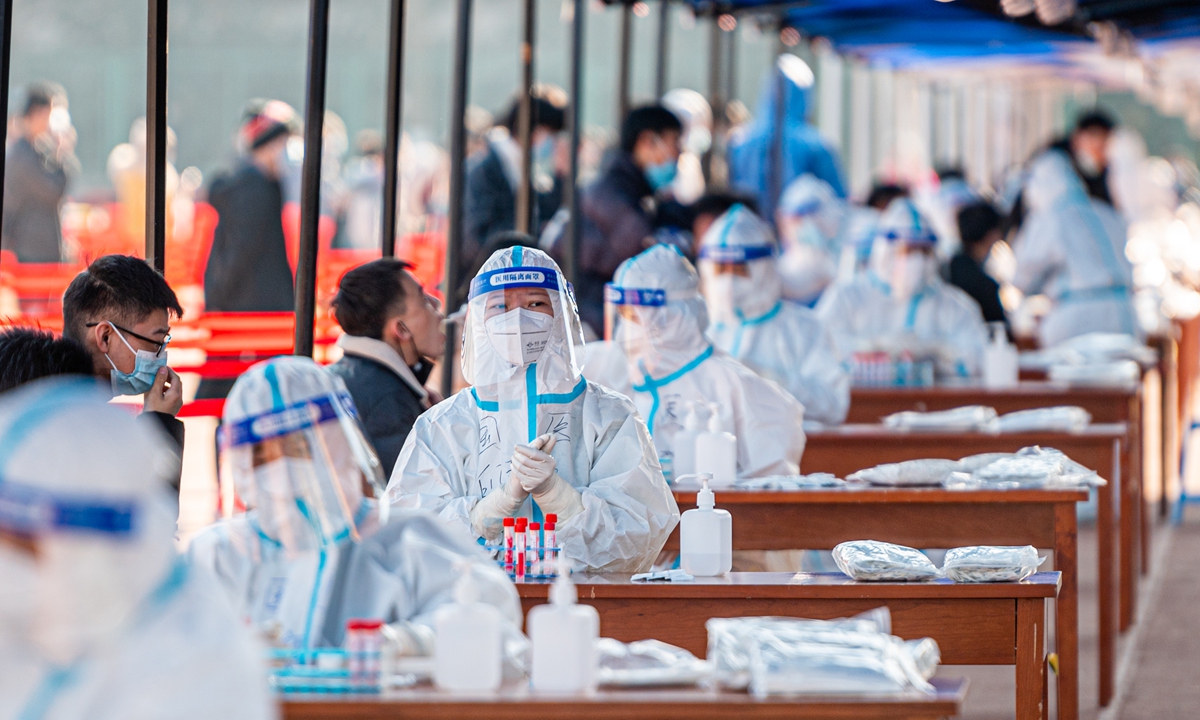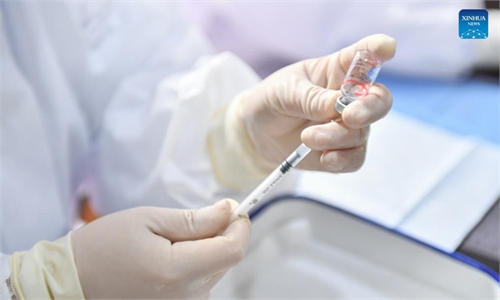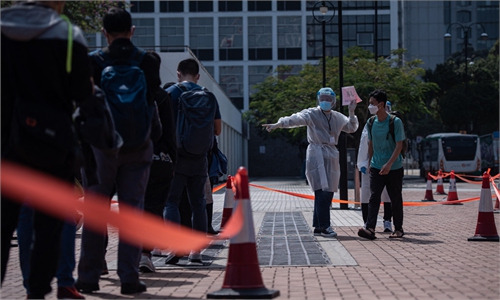China vows to tighten up supervision of vaccines, refine epidemic containment measures

Photo: VCG
China vowed to further reform the system for disease prevention and control, and tighten up regulation and supervision of drugs and vaccines, according to a government work report submitted Saturday to the national legislature for deliberation.
Outpatient bills for more common illnesses became reimbursable under the basic medical insurance scheme, according to the report, noting 60 percent of cross-provincial inpatient medical expenses were directly settled where they were incurred.
The report said China will continue its effective routine COVID-19 control policy. To prevent inbound cases and domestic resurgences, the country needs to constantly refine epidemic containment measures, strengthen epidemic controls in port-of-entry cities, step up efforts to study and reduce the threat of virus variants, accelerate research and development of vaccines and effective medicines, and continue implementing vaccination programs.
"Occurrences of local cases must be handled in a scientific and targeted manner, and the normal order of work and life must be ensured," the report said.
"We will intensify supervision over the quality and safety of drugs and vaccines. Reform of medical insurance payments under the medical insurance scheme will be deepened, and medical insurance funds will be placed under strict oversight. We will improve the policy on directly settling medical expenses incurred outside of a patient's home province, and ensure that the list of medicines covered by medical insurance is largely consistent nationwide," according to the report.
The pledge comes amid the further promotion on the country's ambitious Healthy China initiative with emphasis on prevention.
"We will steadily enhance services for the prevention and treatment of illnesses including cardiovascular and cerebrovascular diseases and cancer, and better ensure the supply of medicines for rare diseases. We will improve the disease prevention and control network, make greater efforts to train public health personnel, and improve our capabilities for monitoring major epidemics and conducting early warning, epidemiological investigation and tracing, and emergency response," it said.
Specifically, China will deepen the reform of public hospitals to make sure that the charges collected by medical institutions and the services they offer are well-regulated. The country will also continue to assist medical institutions hit by COVID-19 and shore up weak links in services such as maternal and child healthcare, pediatrics, mental health and medical care for the elderly.
The report also noted that China will support initiatives for vitalizing and developing traditional Chinese medicine and advance its all-around reform.

Medical staff conduct nucleic acid tests at the Northwestern Polytechnical University in Xi'an, Northwest China's Shaanxi Province on December 21, 2021. Photo: VCG
As China's dynamic zero-COVID policy enters its third year, amid concerns over its impact on the economy, particularly manufacturing and the lives of residents, Zhang Yesui, spokesperson for the fifth session of the 13th National People's Congress, said at Friday's press conference that "strict epidemic prevention and control measures have made China one of the most successful countries in fighting the pandemic."
The dynamic zero-COVID approach is based on China's anti-epidemic strategy and experience. It involves discovering the infection source timely, conducting interfering measures quickly and treating the patients effectively. It is aimed at achieving the maximum outcome at a minimum cost, Zhang explained. The dynamic zero-COVID approach does not pursue zero infections but puts the outbreak under control as soon as possible, he said.
NPC deputies and CPPCC National Committee members are expected to share their insights on how to further strengthen monitoring and early warnings, increase the precision of prevention and control measures, and balance regional distribution of medical resources to make the public health care system more resilient.
Global Times


